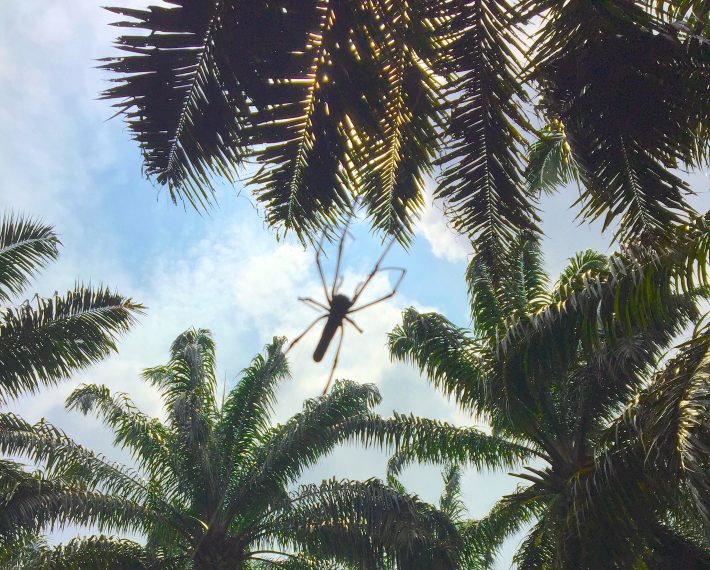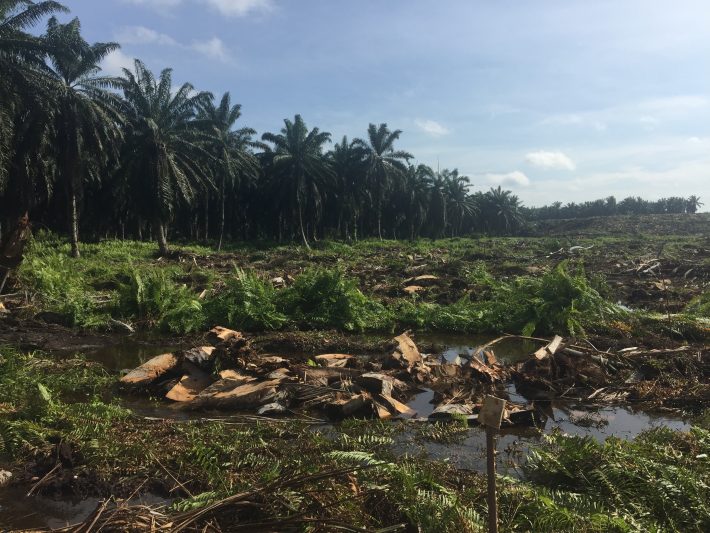Oil palm replanting may decrease arthropod biodiversity
New study published in Journal of Applied Ecology finds that oil palm replanting may decrease the biodiversity of arthropods, such as insects and spiders.

Oil palm is the most traded vegetable oil in the world, featuring in products ranging from instant noodles to lipstick. It has long been the source of huge controversy as plantations – most of them in Southeast Asia – often replace tropical rainforests which are rich in biodiversity, depriving species of their habitats.
However, although levels of biodiversity are much lower than in forests, mature oil palm plantations have been found to support a wide range of generalist species. These generalist species are highly important because they provide vital services, like pollination, within oil palm plantations.
After 20-30 years, many oil palm plantations are being replanted to boost long-term productivity. The impact of replanting on existing levels of biodiversity has been little studied.
A new study finds that replanting, even with measures taken to lessen ecosystem impact, may decrease the biodiversity of arthropods, such as insects and spiders.

The study, Assessing the effects of oil palm replanting on arthropod biodiversity, published in the Journal of Applied Ecology, shows that while the total number of arthropods remains similar after replanting of oil palm, both overall arthropod and spider-specific community composition changes, with spider numbers and species richness falling in some microhabitats. Given the important roles that arthropods perform, the researchers say this could impact ecosystem processes, such as pest control, in second-generation oil palm plantations, with potential implications for yield.
The researchers studied an industrial plantation in Riau, Indonesia to assess the impacts of replanting over an eight-year post-replanting period on arthropods. Replanting was carried out using current recommended strategies, which included staggering replanting events, retaining mature oil palm riparian buffers and planting a cover crop immediately after replanting.
Lead author Michael Pashkevich, who is completing his PhD in the Insect Ecology Group at the University of Cambridge’s Department of Zoology, said: “Whilst it is somewhat encouraging from a management perspective that recommended replanting strategies maintain overall arthropod abundance, the changes in composition and spider biodiversity that we observed may impact ecosystem processes, such as pest control, in second-generation oil palm plantations, with potential implications for yield.
“Overall, our study demonstrates how replanting of oil palm, using current practices, might affect biodiversity. We now need to understand how individual replanting strategies support biodiversity and ecosystem processes during replanting events. Encouragingly, such research is already taking place. Ultimately, this research will provide vital insight into the ecological impacts of replanting on existing oil palm plantations.”
You read the article for for free (for a limited time) here:
Pashkevich MD, Aryawan AAK, Luke SH, et al. Assessing the effects of oil palm replanting on arthropod biodiversity. J Appl Ecol. 2020;00:1–17. https://doi.org/10.1111/1365-2664.13749
Like what we stand for?
Support our mission and help develop the next generation of ecologists by donating to the British Ecological Society.